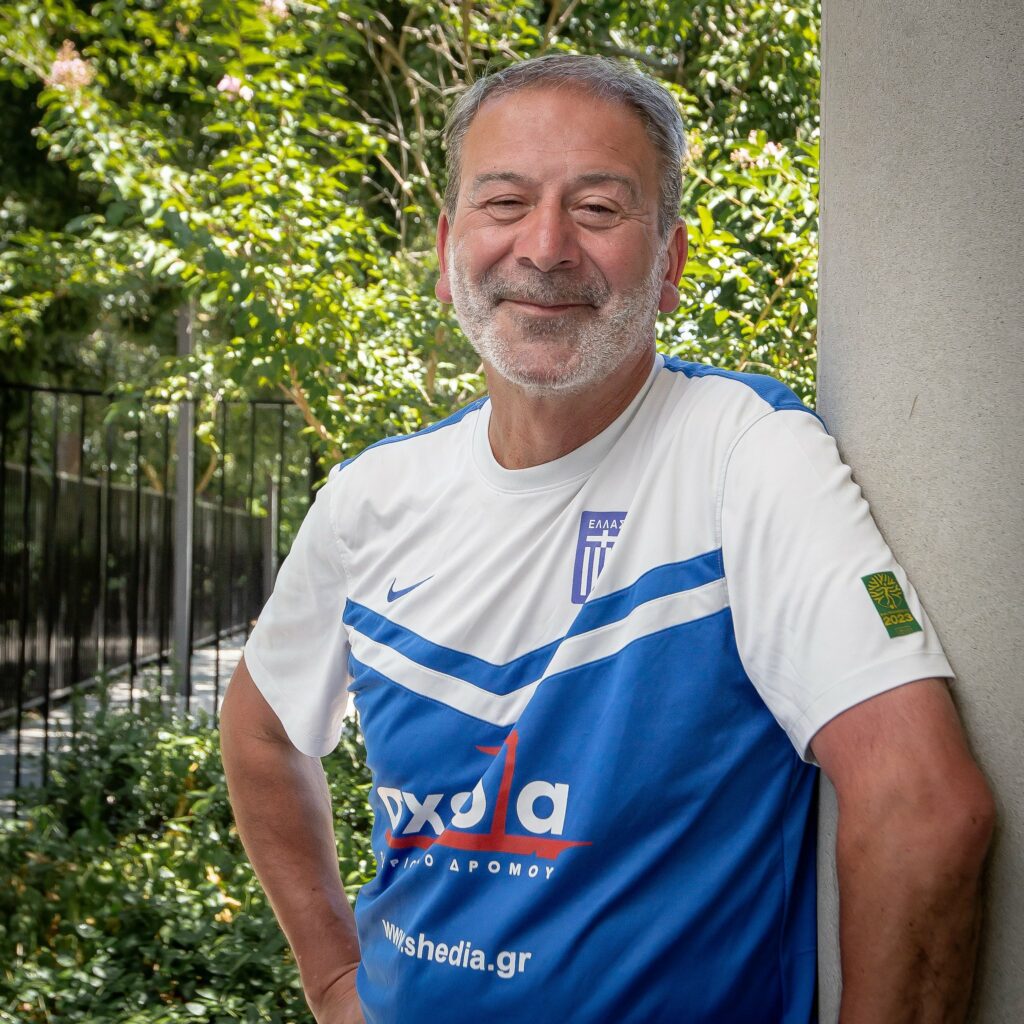

It’s 2009. Cristiano Ronaldo makes his debut for Real Madrid; Slumdog Millionaire wins the Best Film Oscar; Norway triumphs in the Eurovision Song Contest; and the Finnish video game, Angry Birds, is released.
The global financial crisis of the previous year has turned the corner in many countries but, in Greece, it’s hitting the populace with renewed force. A series of sudden reforms and austerity measures have led to impoverishment and loss of income and property, precipitating a humanitarian crisis.
Nikos Theodoridis doesn’t need anyone to remind him of 2009. He was one of the many Greeks who found themselves unemployed and, soon after, homeless when the financial crisis brought his country to its knees that year, necessitating urgent help from the International Monetary Fund.
“I had my own business on the island of Rhodes,” he recalls. “I owned stores for selling souvenirs to the tourists. I employed 16 people, I had cars, my own house, a loving family around me but, because of this crisis I lost everything.
“It took a huge toll on my mental health and destroyed my life as I knew it. I have two children, but the crisis affected us all and now we don’t have a close relationship. I thought that because I’d lost everything, I couldn’t contribute with money so I decided to leave the family home – I thought I could help them more, financially, by not being a burden.”
Without a roof over his head or an income to buy life’s necessities, Nikos’ home became the streets and he struggled to simply keep alive. Salvation was to begin its march ahead, however, in an ironic twist of fate.
“When I had an income, I used to buy the Greek street newspaper, Shedia, in order to support the people who were selling it,” he explains. “When my turn came – the downturn in all our fortunes – I chose to be a street newspaper vendor to gain an income for myself.
“From having money to buy the street paper, within such a short period of time I ended up selling the same paper.”
Through being part of the street newspaper network, Nikos was introduced to the other associated support systems and, in due course, the street soccer programme.
“I actually joined the team only a few months ago,” he says. “When it was suggested, I didn’t have to think twice because I believe that when people unite they can succeed. When they work together, they can win anything.
“I wanted to be a member of a group, rather than an individual, struggling on my own, so I joined the team to be able to participate in a worldwide, social event and be part of the global family.
“Football may be famous all over the world but this is the first time I have ever been part of a football team – I am in my sixties but the first time I kicked the ball, as a member of any team, was in Sacramento this week!”
Nikos’ eyes start to glisten as he impresses how much he wants to try to overcome his challenges by focusing on playing football and how grateful he is to have been given the chance to be part of the team in Sacramento.
“I want to support the idea of football as a social tool in order to show that we, people who are homeless, are visible. By using football in this way, I will do my part to make the world aware of homelessness.
“Football reflects life. You never give up and you always try to score. This is what I try to remind myself for life – never give up, always strive for your goals.”
When not physically on the pitch, kicking the ball, Nikos is always to be found on the sidelines cheering the loudest, rallying his teammates and encouraging his new friends representing other nations, joyful in the fact he’s been given this chance.
It’s an opportunity he still can’t quite believe has come his way.
“When I put the shirt of my country on and I walked on to the pitch here in California, I was wondering, am I here for real? After that I thought, I’m not a sportsman but I like to fight for things in my life, that’s why I’m here.
“The Homeless World Cup will be the peak of my short football career but now I have been inspired to continue to fight all my life.”